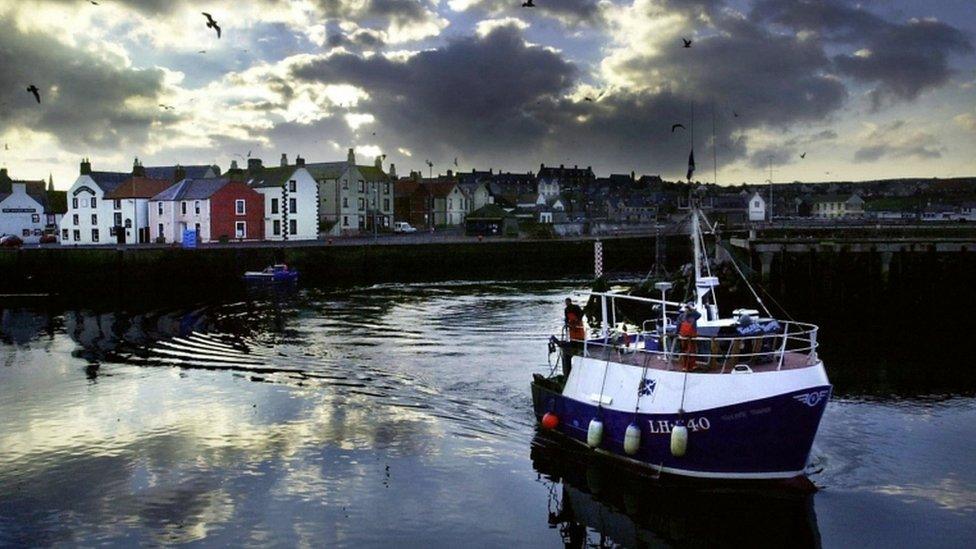Brexit: Email slip-up reveals no-deal fishing patrol 'uncertainty'
- Published
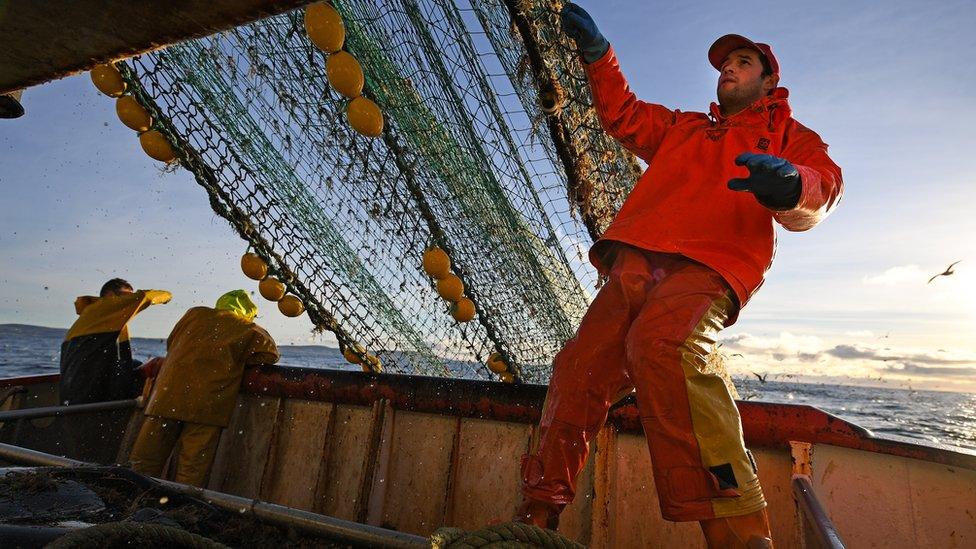
There is "a lot of uncertainty" about the UK's capacity to patrol fishing waters after a no-deal Brexit, a government memo mistakenly emailed to the BBC has revealed.
The memo, from the Department for the Environment, Food and Rural Affairs, says there are just 12 ships "to monitor a space three times the size of the surface area of the UK".
Meanwhile Michael Gove has said there will be a government support fund to help British businesses in the event of a no-deal Brexit.
The UK is due to leave the EU on 31 October. A "divorce" deal - which sets out how the UK leaves - has not been agreed and Prime Minister Boris Johnson has pledged to leave whether one is reached or not.
In the event of leaving without a deal,, external the UK would become an independent coastal state and leave the Common Fisheries Policy, which states the EU's shared rules about how much fish countries can catch and where.
But ministers said they are confident security will be enforced after Brexit.
'Not an overly strong footing'
Defra's internal email mentioned a number of media stories, including one being worked on by a freelance journalist for the Independent.
According to the memo, the story planned to look at the preparation being made to deter EU fishermen from UK waters in the case of a no-deal Brexit, and also whether the UK will enforce the exclusion of foreign vessels.
The note reads: "While our public position on this wider issue is already clear and widely communicated, in that post-Brexit we will be an independent coastal state with control of our waters, both policy and MoD have indicated we are not on an overly strong footing to get ahead of the potential claims that could arise from this story.
"At this stage, there is a lot of uncertainty about the sufficiency of enforcement in a no-deal because we have 12 vessels that need to monitor a space three times the size of the surface area of the UK."
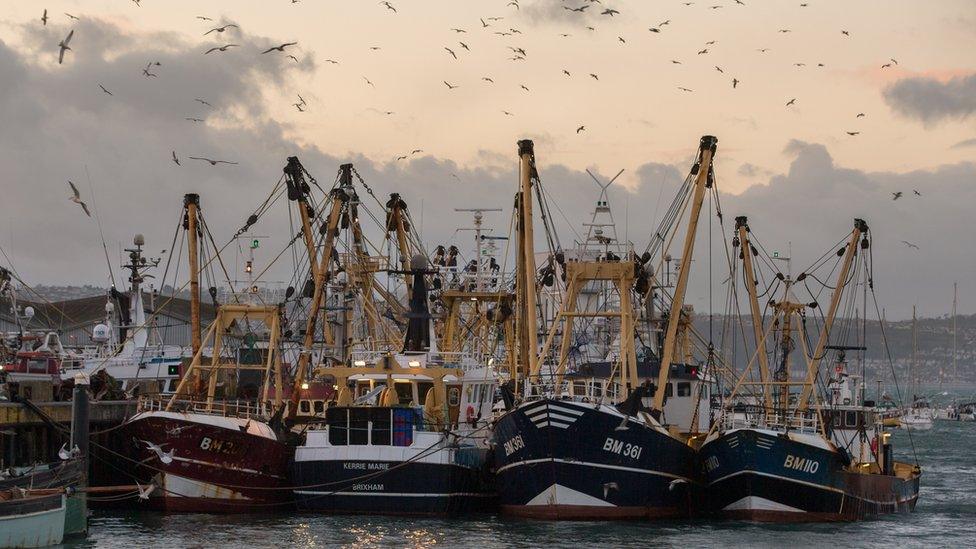
Admiral Lord West, a Labour peer and former First Sea Lord, said the email appeared to show the UK has "insufficient assets to patrol and look after our exclusive economic zone for fisheries, and also our territorial seas".
"This will be thrown into stark relief if we should cease to have an agreement with the EU on fisheries."
He added: "This is something a number of us have been saying for some time now, but it has always been denied by Defra and the government."
'Foolish'
However, Barrie Deas, the CEO of the National Federation of Fisherman's Organisations (NFFO), said any EU vessel would be "foolish" to fish in UK waters - even without a deal in place.
He told BBC Radio 4's Today programme: "Under international law, the UK would automatically become an independent coastal state with the rights and responsibilities of that status and there is an obligation under the UN Law of the Sea for countries that share stocks to co-operate.
"So I think there will be a fisheries agreement post-Brexit between the UK and the EU, but on a different basis from the Common Fisheries Policy."
A government spokesperson confirmed an internal email concerned with the "veracity and details of media enquiries" had been "inadvertently sent outside of Defra".
They said: "Britain is leaving the EU on 31 October with or without a deal.
"We are confident that we will have the ships and the expertise we need to properly enforce security in UK waters."
Mr Gove, the cabinet minister in charge of preparations for a possible no-deal Brexit, spoke openly for the first time about a government support fund for British businesses during a visit to Northern Ireland on Friday.
The support package, known as Operation Kingfisher, will help companies deal with any "bumps in the road" that might occur as a result of a no-deal Brexit.
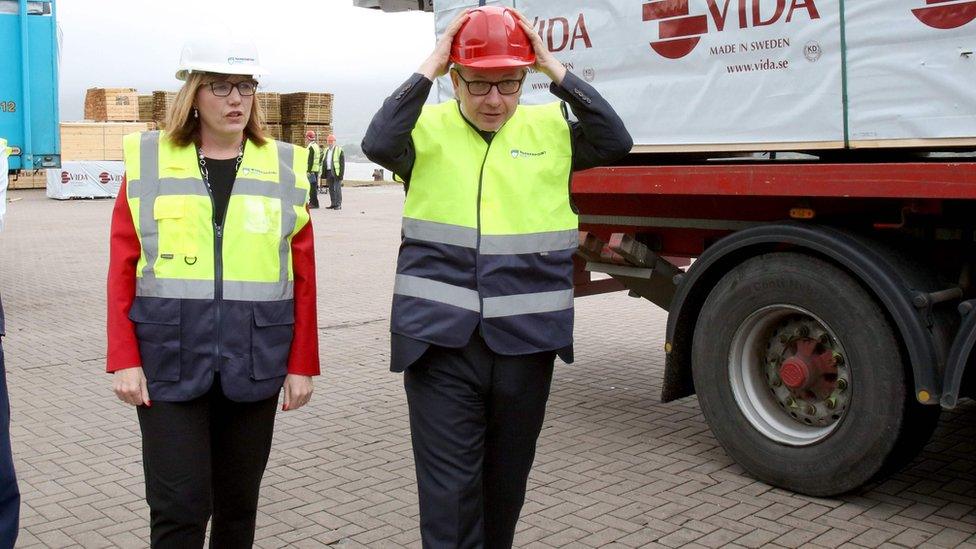
Cabinet minister Michael Gove spoke about plans to help businesses on a visit to Northern Ireland
BBC political correspondent Jessica Parker said the plans predate Boris Johnson's premiership but few details have so far been revealed - including how much money will be made available and where the cash would come from.
According to the Times, the government has compiled a list of companies, external it believes could be most exposed financially if the UK leaves the EU without a deal and may need of help. It is said to include a number of firms in the construction and manufacturing sectors.
- Published9 August 2019
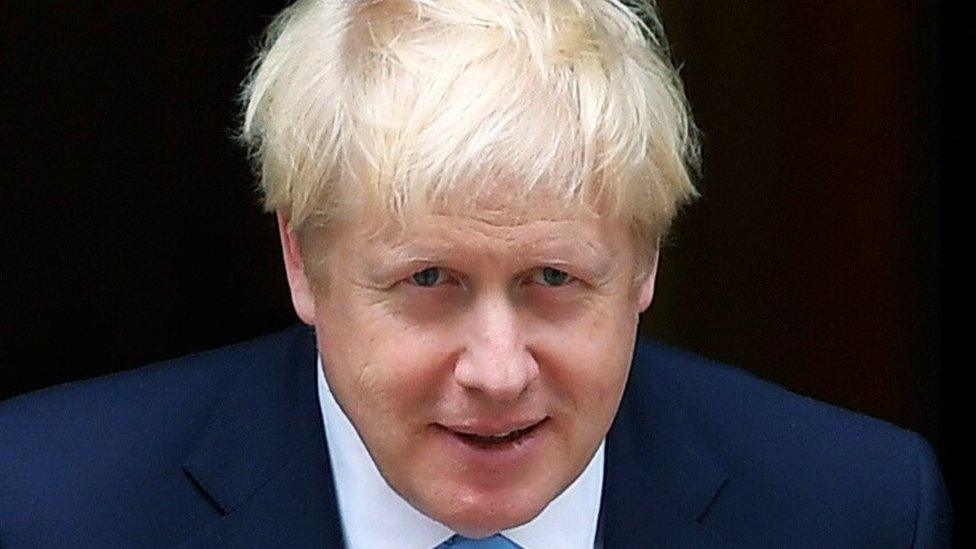
- Published13 December 2020
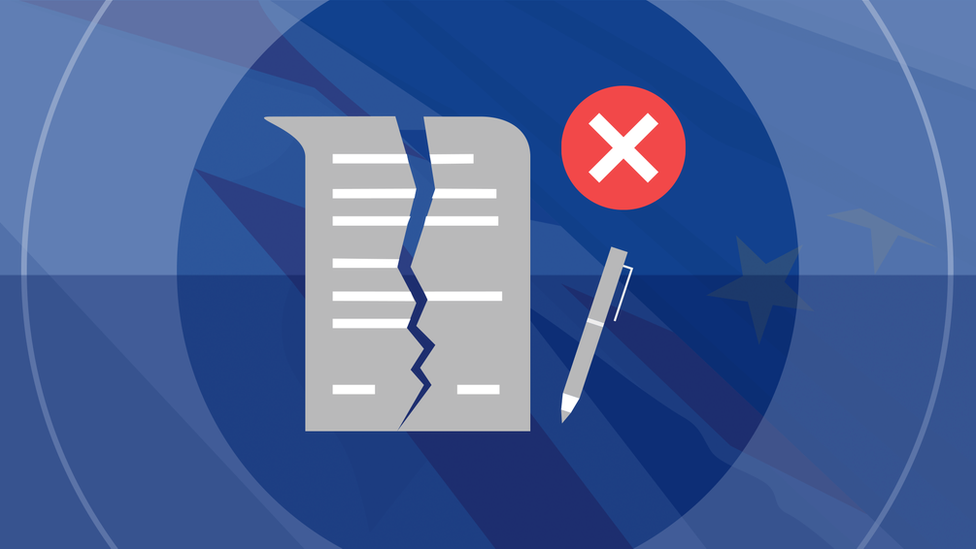
- Published3 September 2019
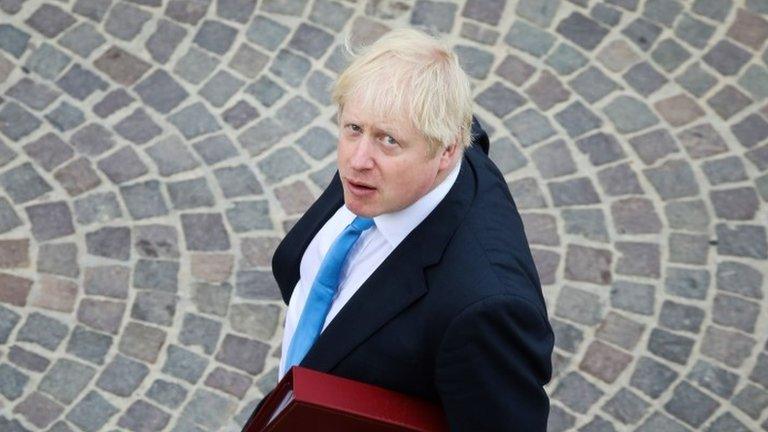
- Published8 August 2019
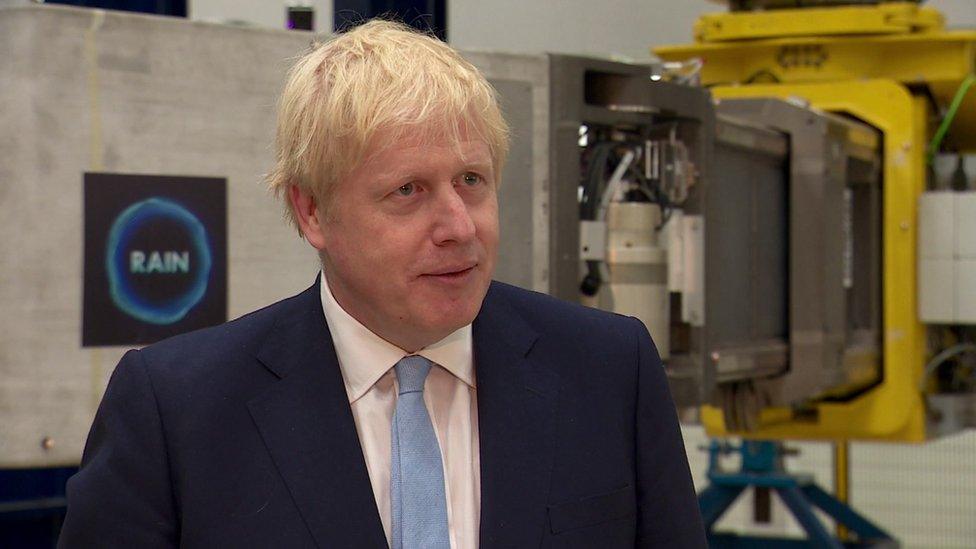
- Published9 August 2019
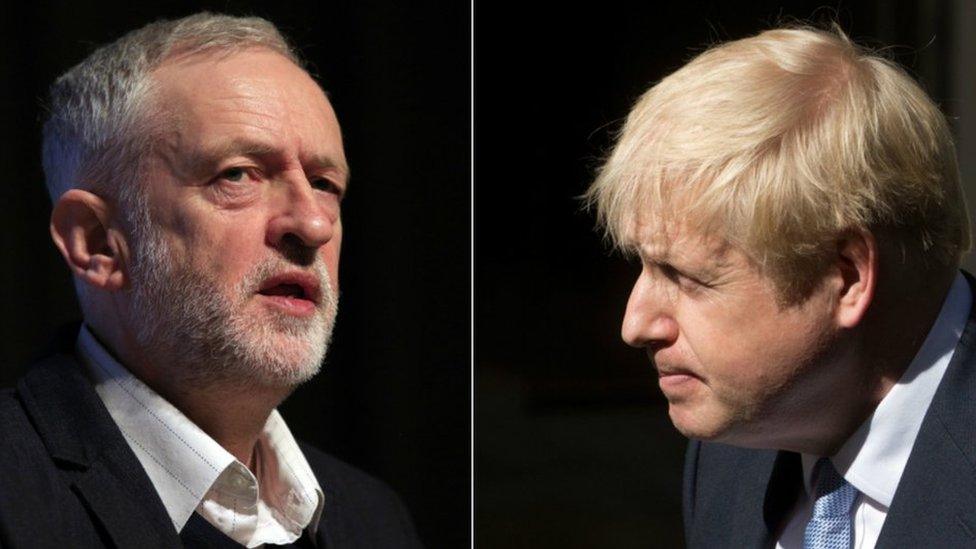
- Published28 November 2018
